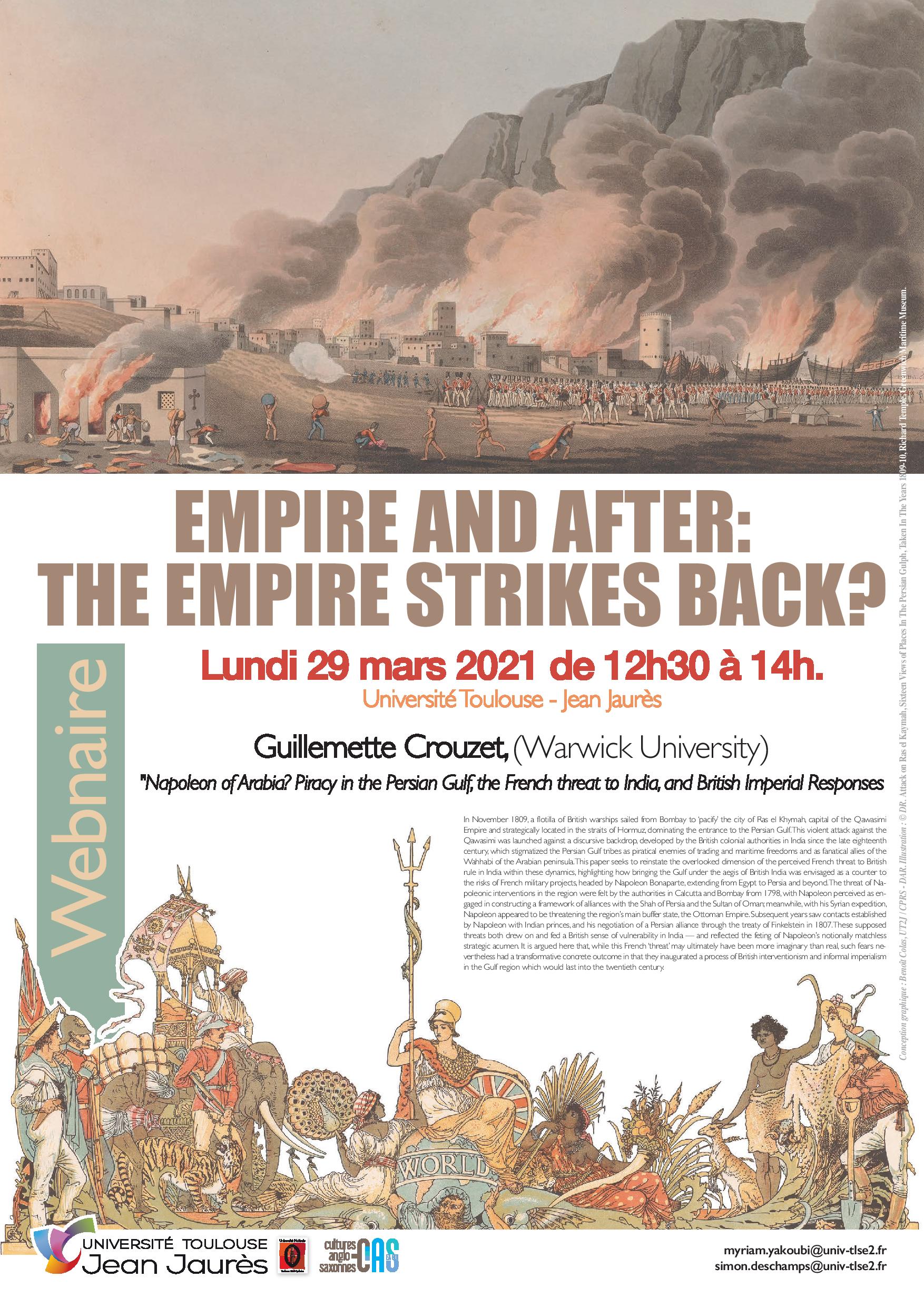-
Partager cette page
Conférence de Guillemette Crouzet : "Napoleon of Arabia? Piracy in the Persian Gulf, the French threat to India, and British Imperial Responses" (Empire and After)
Publié le 9 mars 2021 – Mis à jour le 9 mars 2021
le 29 mars 2021
12h30-14h
En ligne
Empire and After: The Empire Strikes Back?
Guillemette Crouzet: "Napoleon of Arabia? Piracy in the Persian Gulf, the French threat to India, and British Imperial Responses"
Abstract
In November 1809, a flotilla of British warships sailed from Bombay to ‘pacify’ the city of Ras el Khymah, capital of the Qawasimi Empire and strategically located in the straits of Hormuz, dominating the entrance to the Persian Gulf. This violent attack against the Qawasimi was launched against a discursive backdrop, developed by the British colonial authorities in India since the late eighteenth century, which stigmatized the Persian Gulf tribes as piratical enemies of trading and maritime freedoms and as fanatical allies of the Wahhabi of the Arabian peninsula. This paper seeks to reinstate the overlooked dimension of the perceived French threat to British rule in India within these dynamics, highlighting how bringing the Gulf under the aegis of British India was envisaged as a counter to the risks of French military projects, headed by Napoleon Bonaparte, extending from Egypt to Persia and beyond. The threat of Napoleonic interventions in the region were felt by the authorities in Calcutta and Bombay from 1798, with Napoleon perceived as engaged in constructing a framework of alliances with the Shah of Persia and the Sultan of Oman; meanwhile, with his Syrian expedition, Napoleon appeared to be threatening the region’s main buffer state, the Ottoman Empire. Subsequent years saw contacts established by Napoleon with Indian princes, and his negotiation of a Persian alliance through the treaty of Finkelstein in 1807. These supposed threats both drew on and fed a British sense of vulnerability in India — and reflected the feting of Napoleon’s notionally matchless strategic acumen. It is argued here that, while this French ‘threat’ may ultimately have been more imaginary than real, such fears nevertheless had a transformative concrete outcome in that they inaugurated a process of British interventionism and informal imperialism in the Gulf region which would last into the twentieth century.

